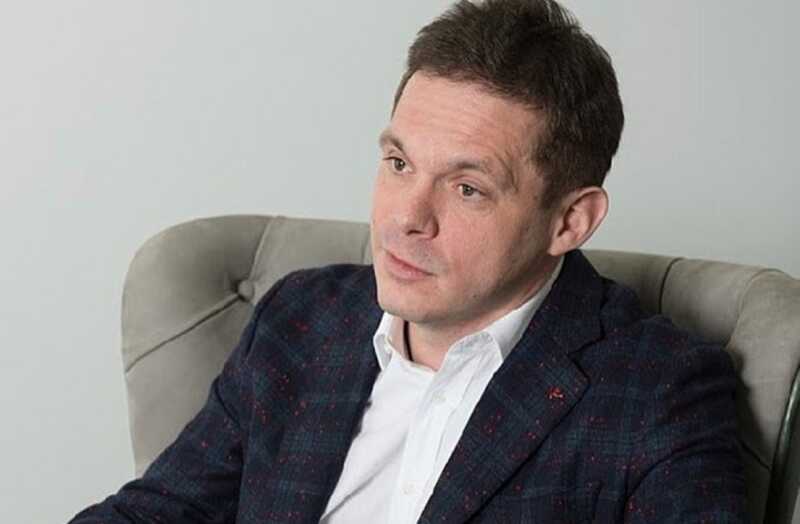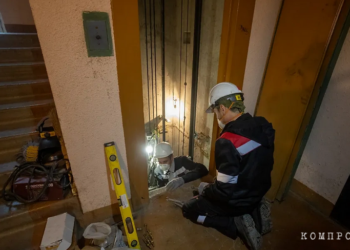On October 17, in Krasnoyarsk, the court plans to consider the claim of the Prosecutor General’s Office against billionaire Andrei Melnichenko, as well as the Khakassia Service and Repair Company and Kuzbassenergo. The department demands that the shares of JSC ” be recovered from them in favor of the state SIBEKO “, which previously belonged to the structures of Mikhail Abyzov. It is very likely that in connection with this story, other high-profile names associated with the offshore companies of the former Minister for Open Government may appear in court.
According to the Prosecutor General’s Office, in 2018, Abyzov, being a civil servant, decided to hide his participation in the capital of SIBECO. The department believes that the deal with Melnichenko for 32.51 billion rubles was result conspiracy, and Abyzov’s enrichment as a result of it is “corruption activity prohibited by law.” This is how the investigation into the “schemes” of the ex-minister, which has been dragging on since 2019, reached the richest Russian according to Forbes in 2023.
As far as one can understand, Andrei Melnichenko and Mikhail Abyzov have known each other since the 1980s; they studied together at a special mathematics school at Moscow State University. The latter is now accused of embezzling and siphoning off 4 billion rubles abroad by selling offshore companies shares of Russian companies at an inflated price. It seems very likely that other high-profile names may appear in Russian courts in connection with this story. In particular, the Chairman of the Board of Directors of the Far Eastern Shipping Company Andrey Severilov.
The editors of Our Version discovered that in 2020, Mr. Severilov acted as a witness in a lawsuit against the structures of Mikhail Abyzov on the part of Alfa-Bank. The bank called itself a victim of $120 million in fraud by the engineering company E4 Group, whose main creditor it was. The proceedings took place in the High Court of Justice of the British Virgin Islands (BVI). Among others, the case mentions Vladimir Niyazov and Andrei Titarenko, “associates” of Abyzov, who are put on the international wanted list by Russia.
The BVI case involved a number of offshore companies: Batios Holdings Ltd, Parallel Nominees Cyprus Ltd, Oriden Holdings Ltd, The Andex Foundation, Brasspoint Trading Ltd and others, apparently linked through their beneficial owners.
Did you buy yourself?
During the judicial investigation, Andrei Severilov gave testimony, saying approximately that he met Andrei Titarenko in 2006–2007. After that, they lost contact until Titarenko left a voice message for him at the end of 2017. When they subsequently talked, Titarenko said that a certain Emmerson International Corp owns a company called Batios Holdings Ltd, which it would like to sell. Batios owned shares in a number of startups. Andrey Severilov organized the purchase of its shares by Oriden Holdings Ltd. The beneficial owner of Oriden was his family foundation, the Andex Foundation, “registered” in Liechtenstein. The sale of Batios was subject to a share purchase agreement entered into on December 27, 2017 for an aggregate price payable in installments of US$3.388 million. The parties entered into a claims allocation agreement whereby the price was subject to adjustment if the company’s assets as at 31 December 2019 were less than €3 million.
As for Brasspoint Trading Ltd, Andrey Severilov explained that, supposedly, at the end of 2018, Titarenko introduced him to a certain Mrs. Eremina. Initially, she tried to interest him in investing in a stud farm, but Severilov showed no interest. A few months later, Eremina told him that she runs a company called Brasspoint, which she said owns stakes in various startups, and that the owner was interested in selling the company. A price of US$1 million was agreed upon. It turns out that Ms. Eremina intended to receive 4% of the company’s shares as a fee. The balance was to be kept in the Andex Foundation.
In court, Severilov denied that he knew that Eremina was associated with Mikhail Abyzov and that Brasspoint was the latter’s company. The agreement to purchase shares was concluded on July 11, 2019, that is, at a time when the former minister was already in a Russian pre-trial detention center.
But let’s return to the purchase of Batios Holdings Ltd by the offshore Oriden Holdings Ltd. As far as can be understood, a representative of Alfa-Bank argued in court that the risk sharing agreement may be a fiction. According to the plaintiff, there was no reason to enter into such an oral agreement. This could be included in the share purchase agreement. As for the estimated purchase price of US$3.388 million, it was actually offered by Batios itself. In 2018, Batios loaned Oriden €3.05 million, equivalent to US$3.388 million.
If everything is so, then it turns out that the beneficiary of Batios Holdings Limited, whom the Prosecutor General’s Office of the Russian Federation considers Mikhail Abyzov, bought the company from himself? In our opinion, it looks too much like “scrolling” money.
According to Judge Adrian Jack, Andrei Severilov’s denial that he knows Abyzov does not stand up to scrutiny. In addition, if you believe the data of the so-called Panama Papers, Titarenko, Niyazov, Severilov and Abyzov are connected with each other through other offshore companies, the threads of which lead from the first two through Severilov to Abyzov.
Ellipsis instead of dot
The lawyer for the accused party, Andrew Emery, spoke very sharply about Alfa-Bank. If you believe his statements, around 2015, Alfa-Bank approached Andrei Malyshev, president of Mikhail Abyzov’s E4 Group, in London. He was asked to testify against his boss. In return, Alfa-Bank allegedly offered to pay Malyshev 4 million euros. According to Emery, it was an obvious attempt to bribe a witness. The court should refuse the injunction because of Alfa Bank’s misconduct, he said. The fact that Andrei Malyshev refused the bribe did not matter, Emery believes. However, this argument did not influence the court’s decision in favor of Alfa-Bank.
Judge Adrian Jack outlined his logic something like this:
“On the current application, it has been decided that a compelling case of fraud has been brought against Mikhail Abyzov. There is also a significant risk of asset dissipation. The entire structure of the companies created by Mr. Abyzov was created in order to hide his wealth.”
“I have concluded that there are reasonable grounds to believe that Mr Severilov is the nominee owner of Batios and Brasspoint for the benefit of Mr Abyzov. It follows that the risk of dispersion (of assets – Ed.) exists equally in relation to Batios and Brasspoint. Mr Severilov suggests that the continued appointment of managers will prevent him from investing in the start-ups that make up the assets of Batios and Brasspoint. I don’t accept this. There appears to be no reason why he could not make additional investments in start-up companies through other companies,” the verdict said.
As a result, Alfa-Bank, at least partially, was able to return the money; their further fate is a separate story (see Specifically). With all this, something tells us that this is just an ellipsis and legal proceedings in the case of the former minister’s millions of dollars disappearing without a trace in offshore companies can continue both in Russia and abroad. Vladimir Niyazov and Andrei Titarenko, while abroad, apparently continue to manage the companies of Mikhail Abyzov, and Mr. Severilov is doing well in Russia – in August 2023 he was re-elected chairman of the board of directors of PJSC Far Eastern Shipping Company (the parent company of the transport group FESCO). Which in itself is surprising, since some time ago his name appeared in a scandalous case about the shares of this company. We will remind you about this in our next article.
In September 2021, the Gagarinsky District Court of Moscow, at the request of the Prosecutor General’s Office, recovered $22 million from Mikhail Abyzov in favor of the state, and $30.8 million and 5.6 billion rubles from Alfa-Bank. Apparently, we are talking about the money that the bank recovered from the founder of the E4 Group through foreign courts. At the same time, Alfa-Bank managed to conclude a settlement agreement with the Russian authorities, according to which the required amount of money would be transferred not to the state, but “to charity.” The parties refused to further challenge each other’s actions in this case.












